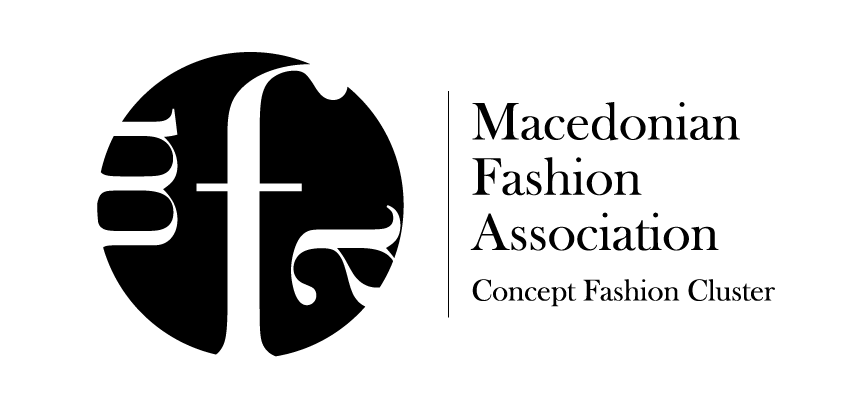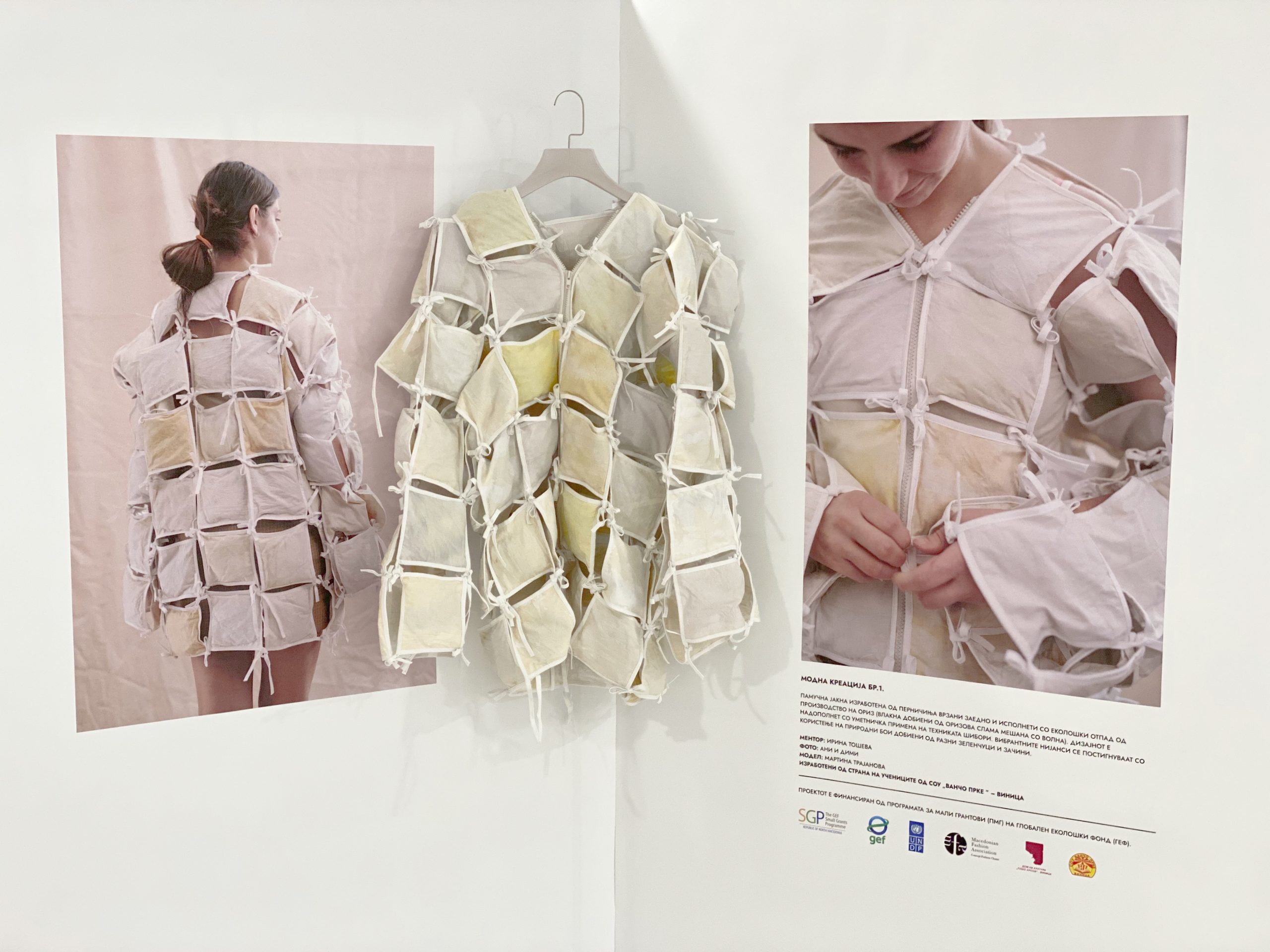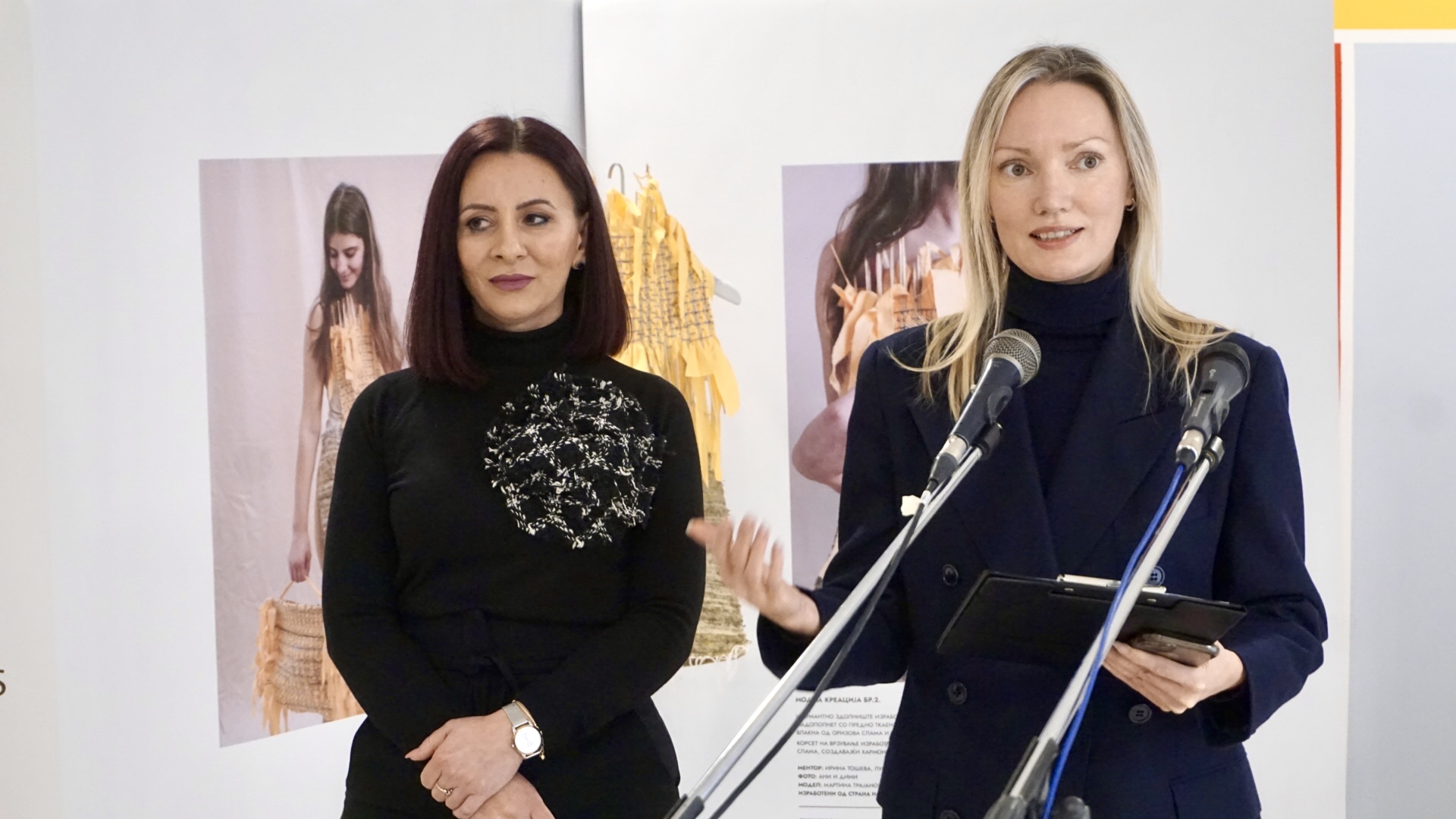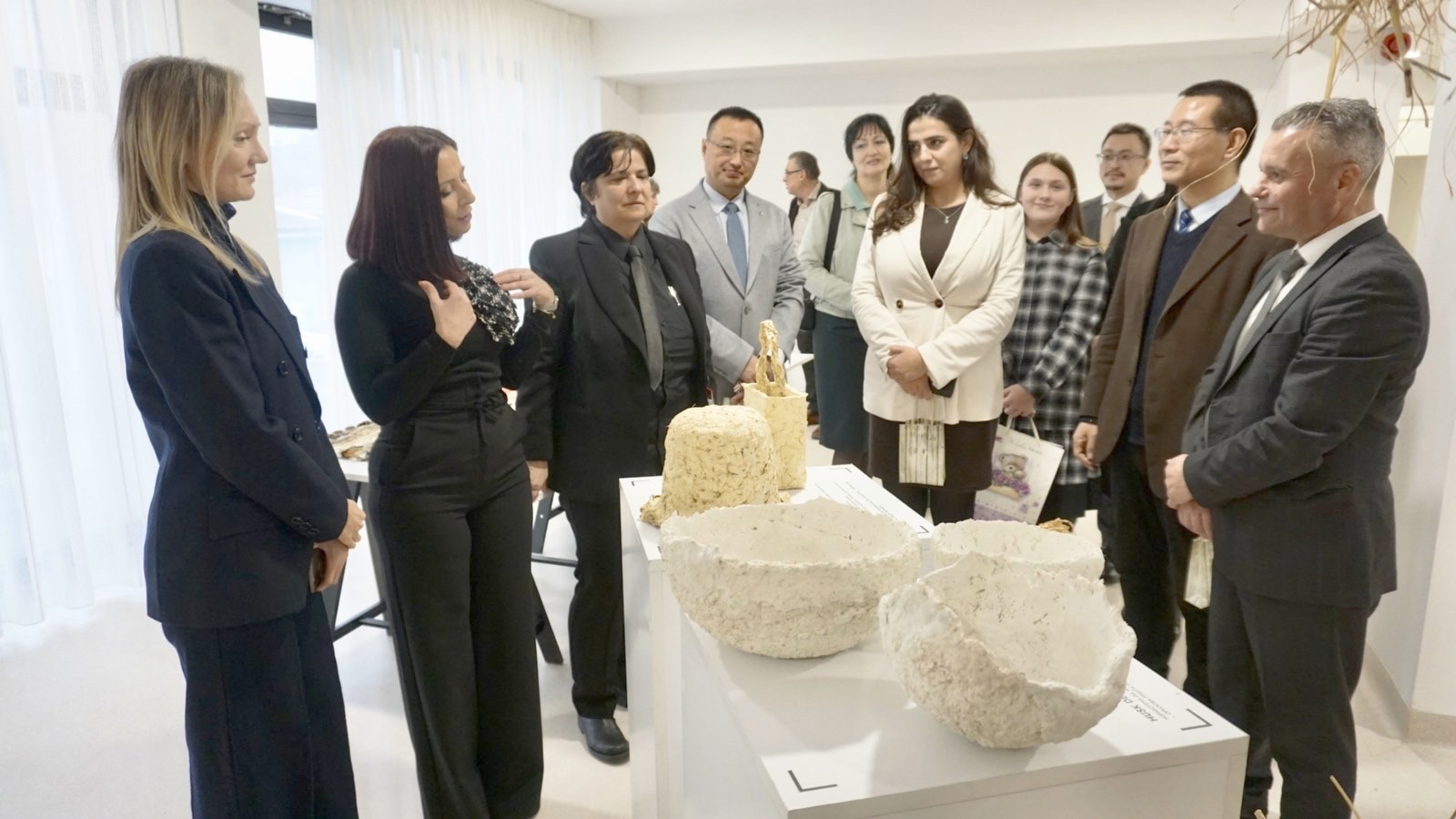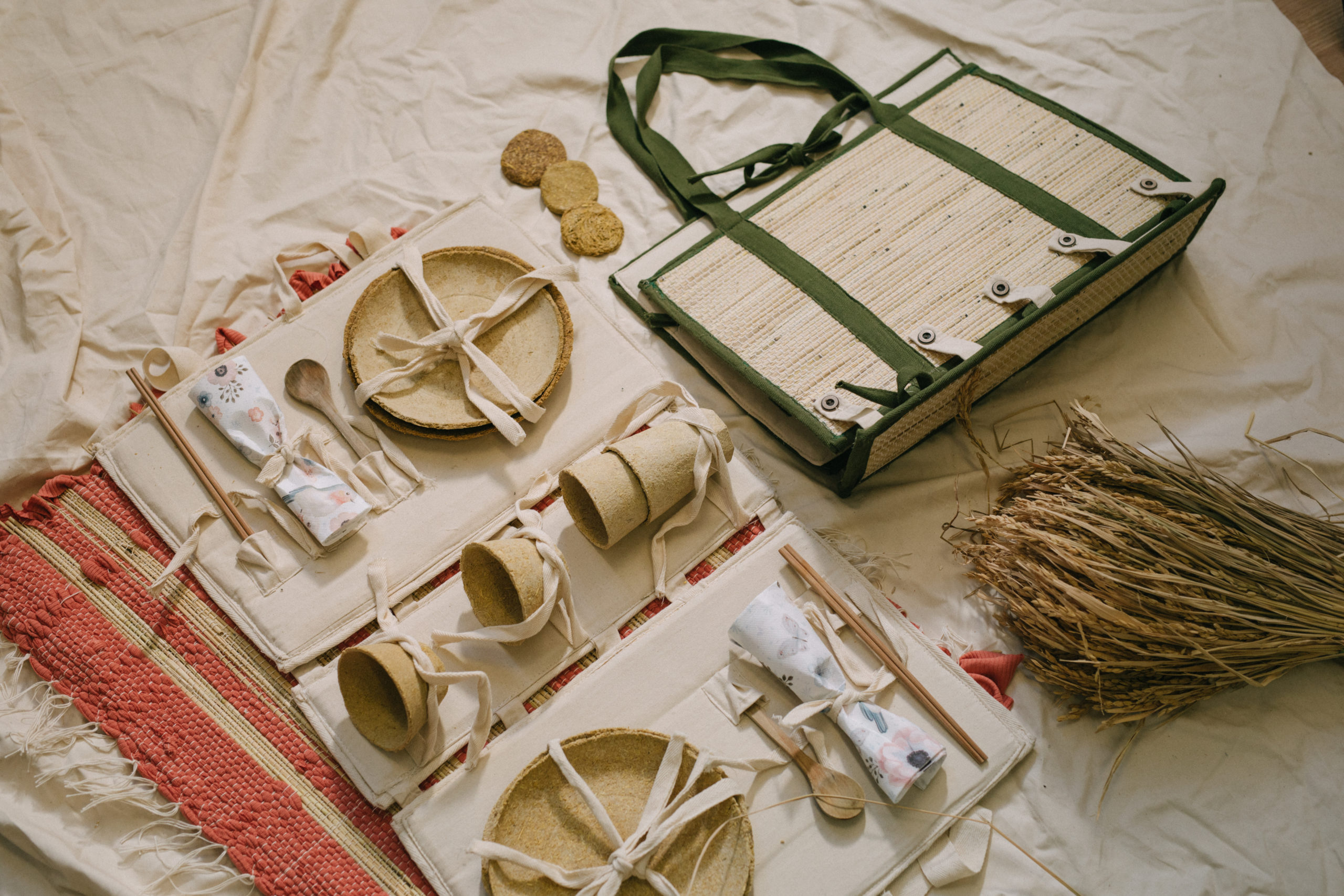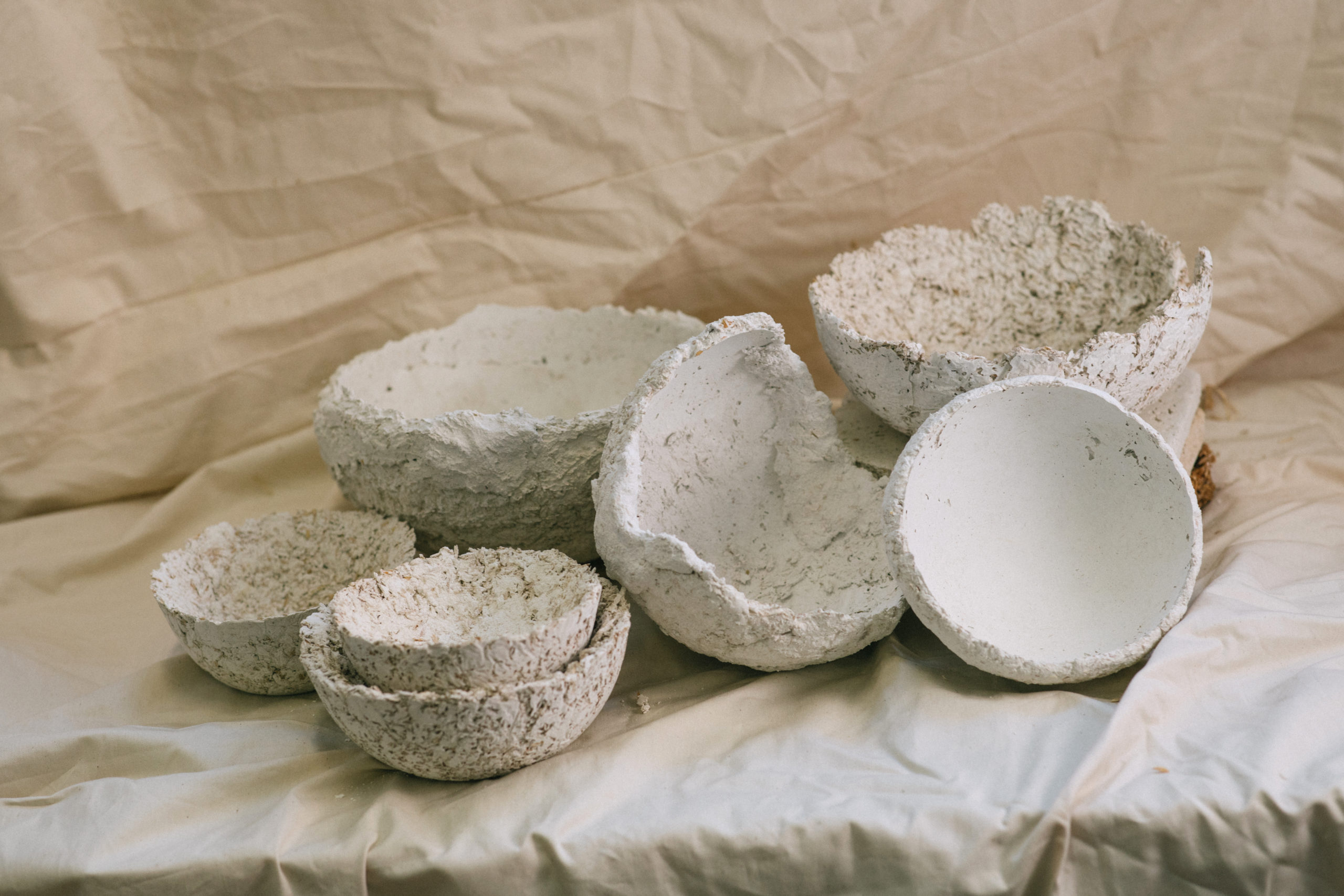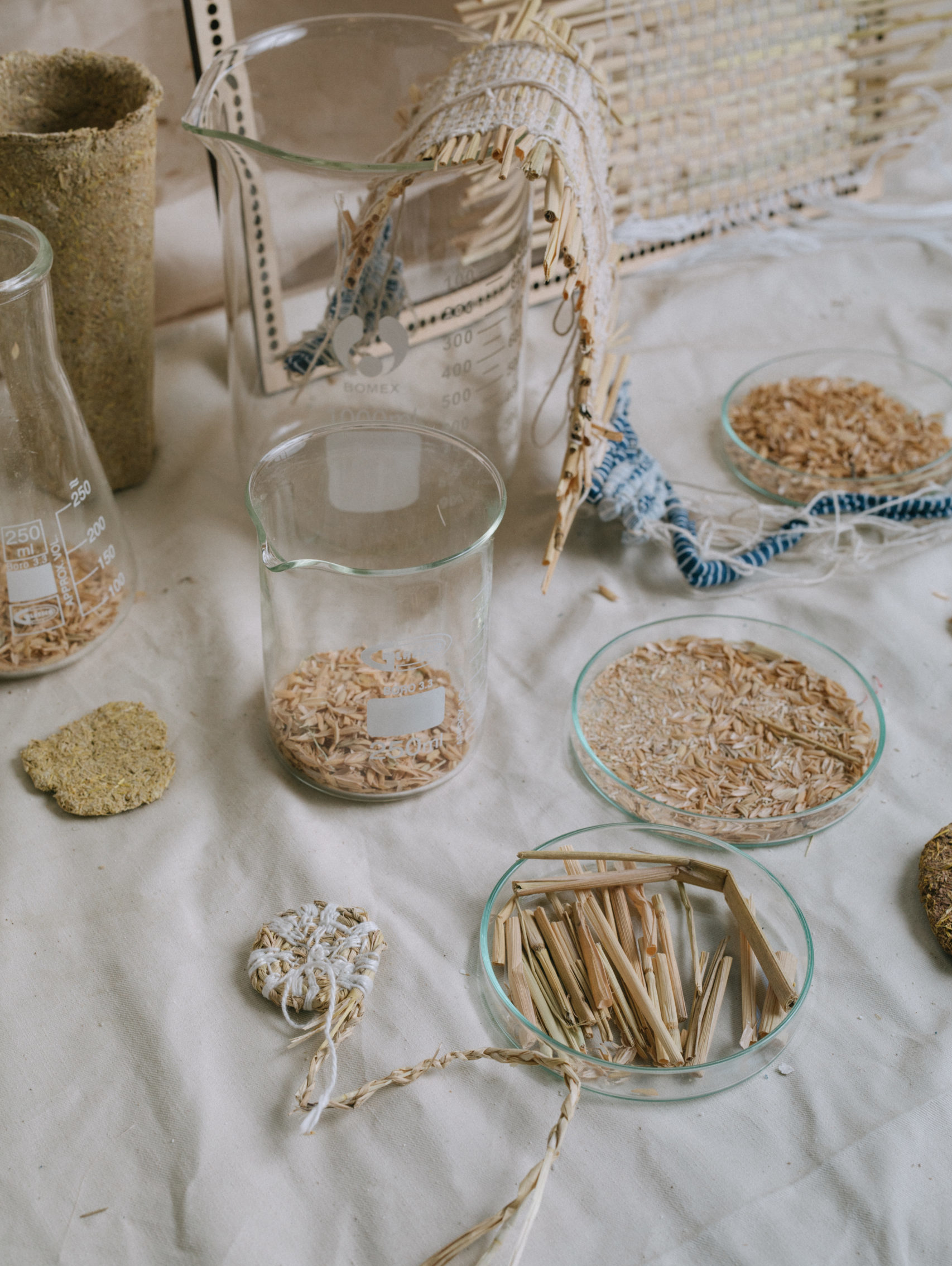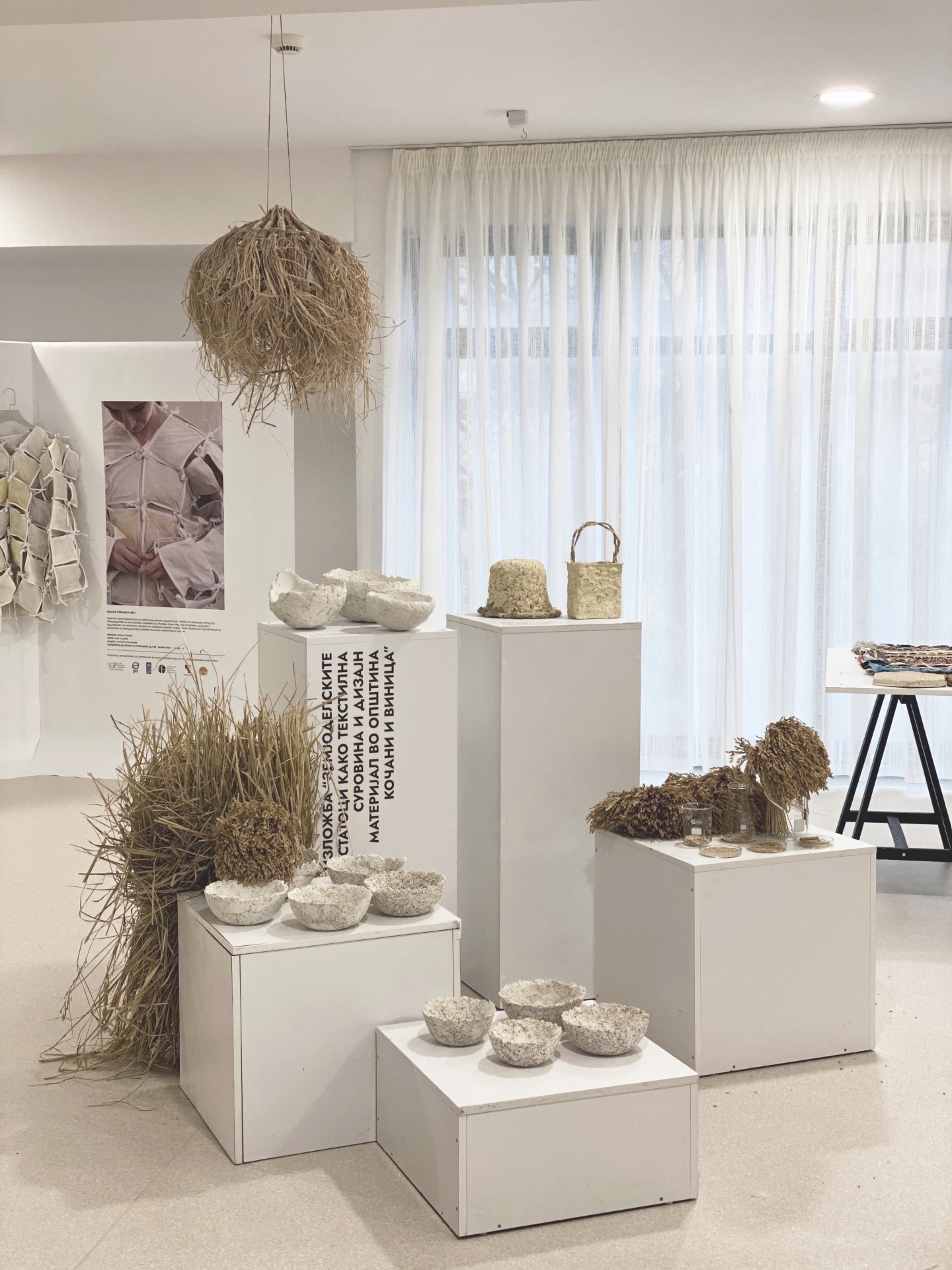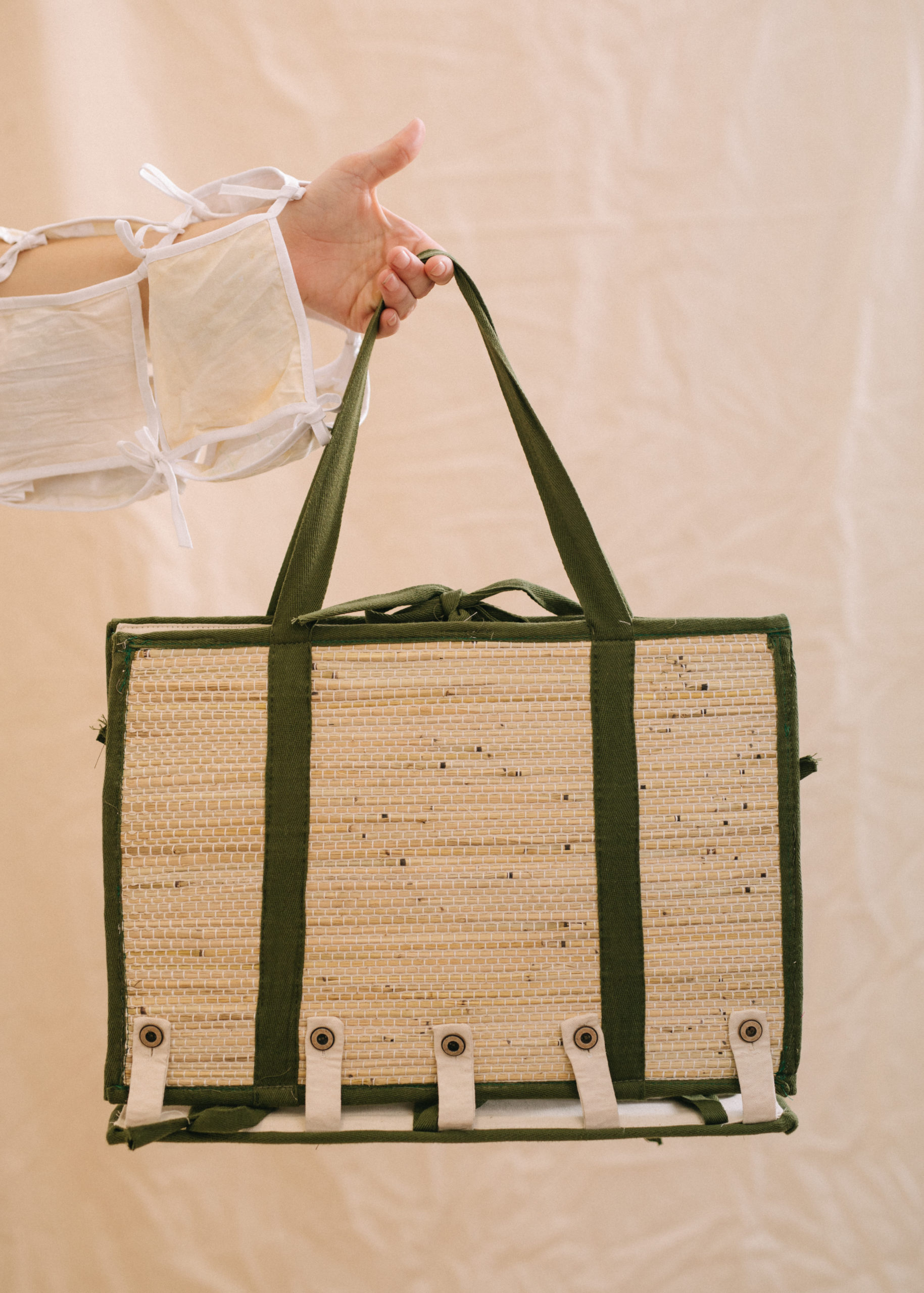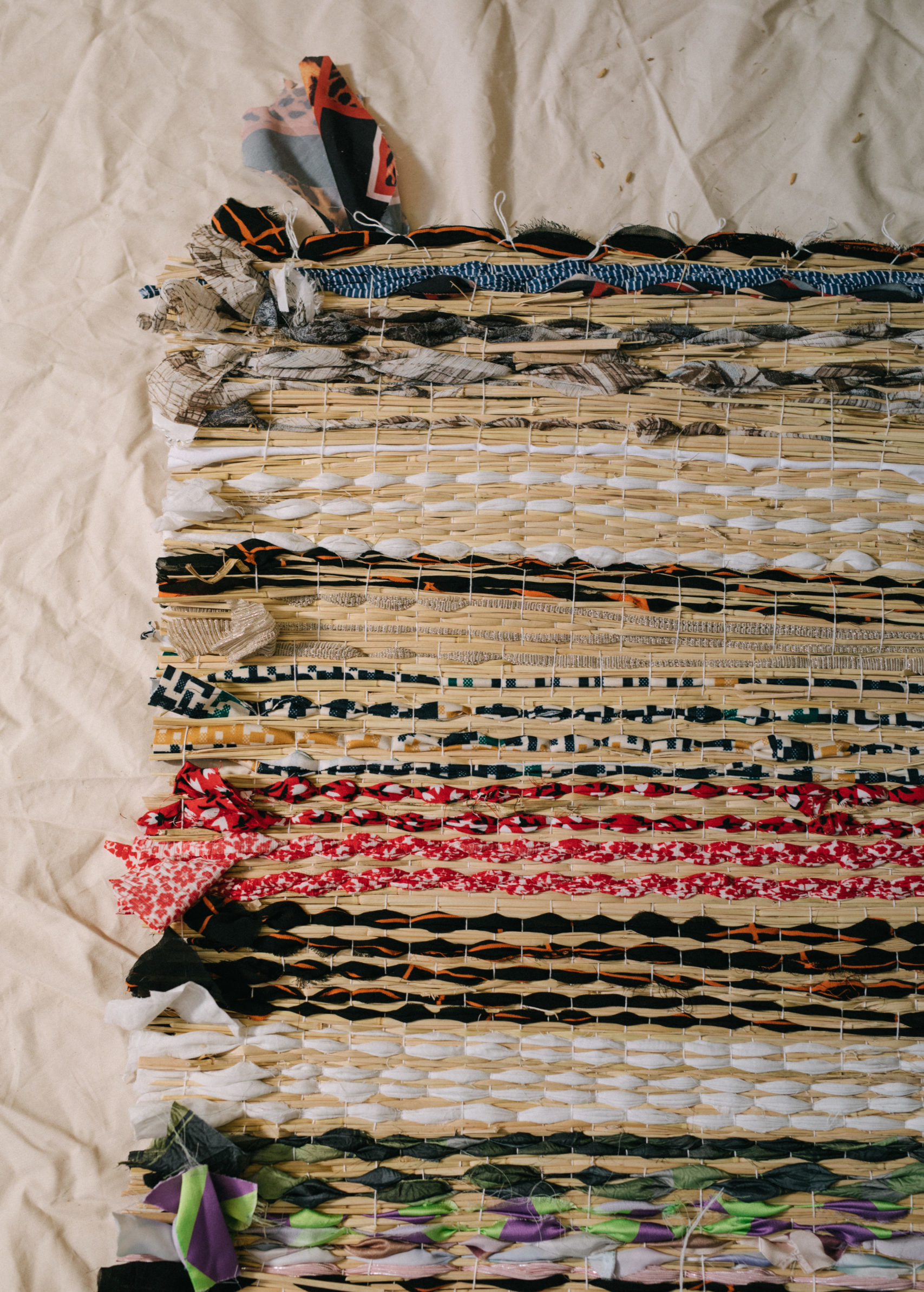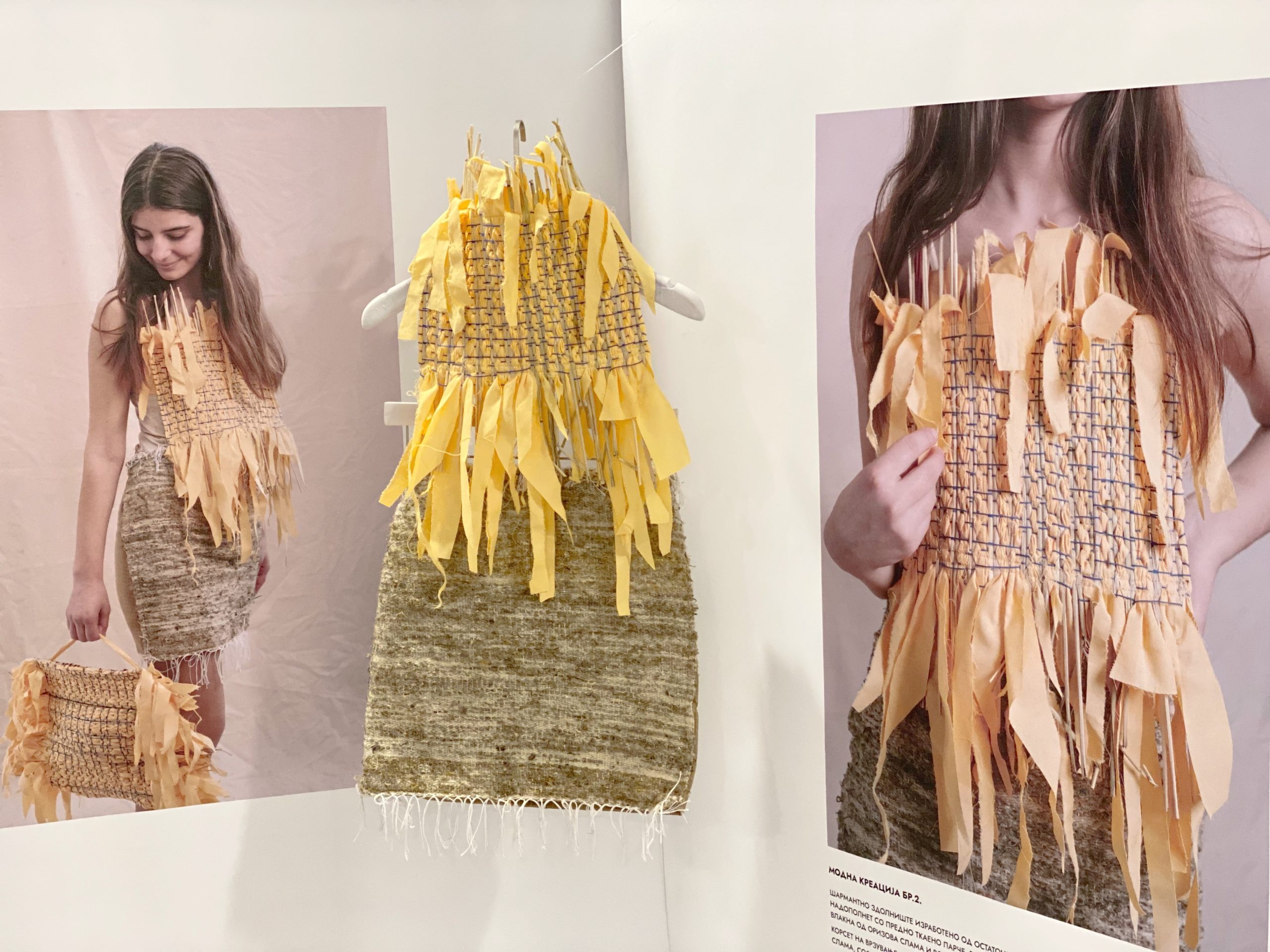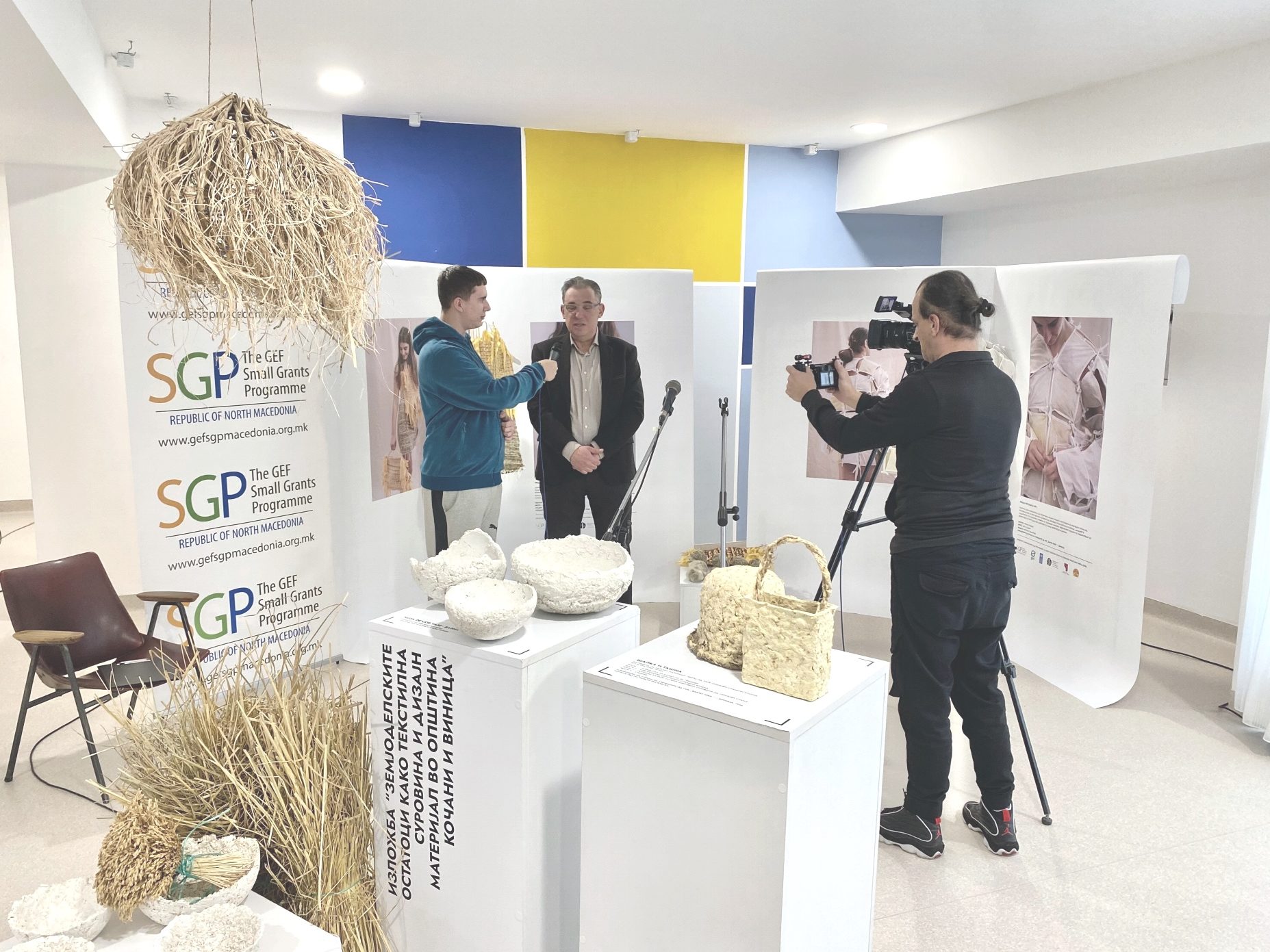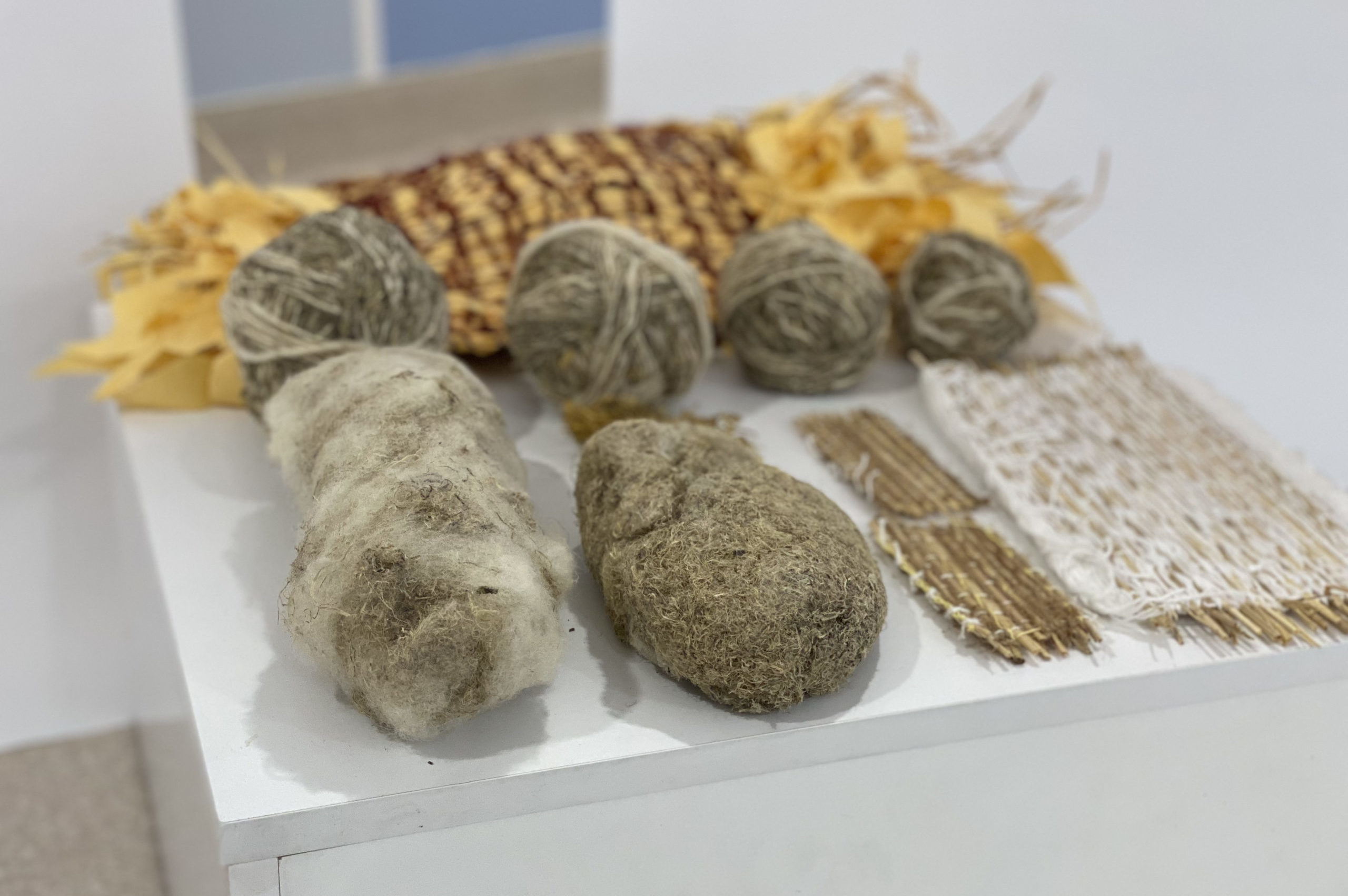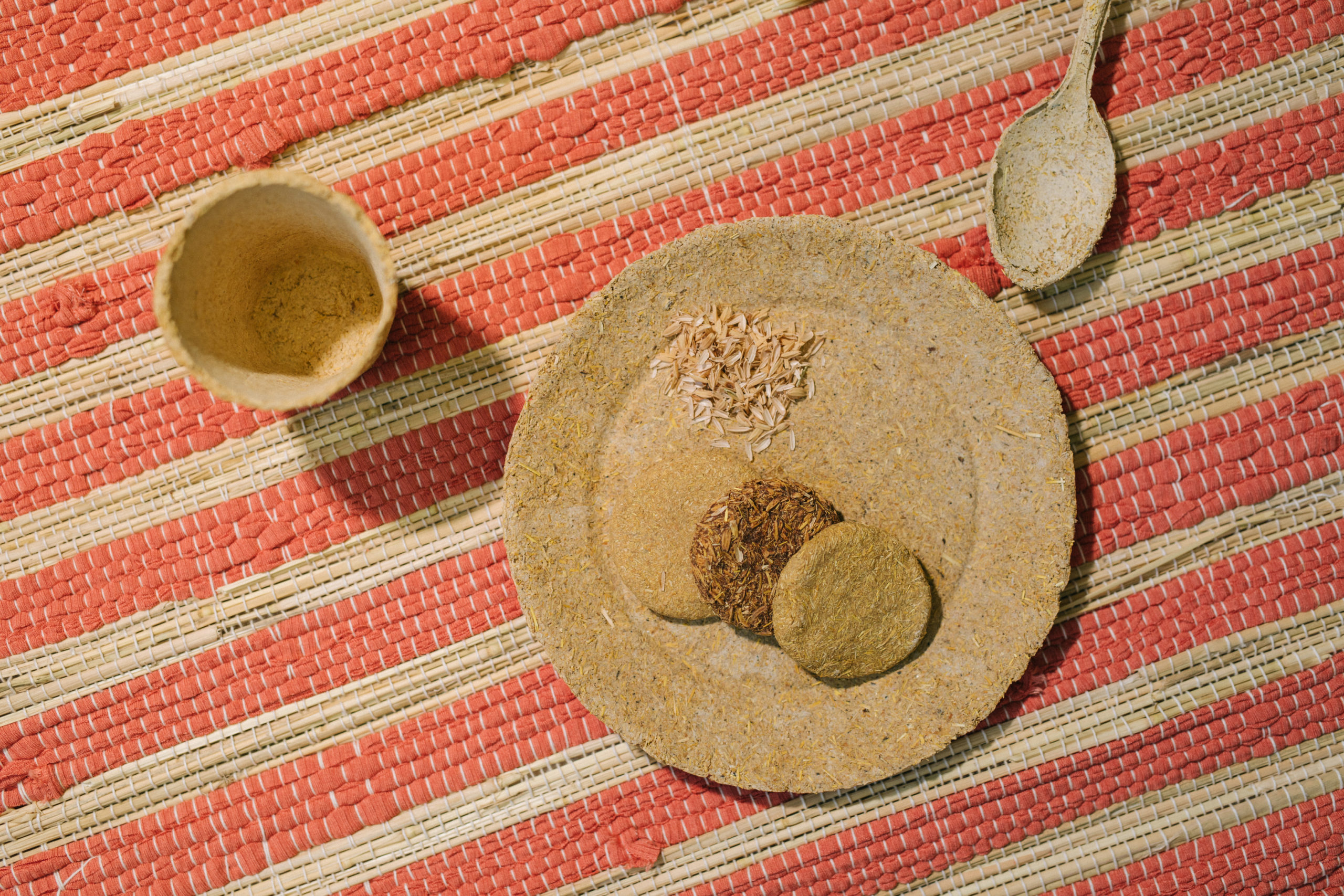Under the slogan “How can rice waste be transformed into design?”, the Macedonian Fashion Association – Skopje, together with about twenty young students from “Vancho Prke” Secondary School – Vinica, on Friday, December 15, 2023, organized an exhibition on the topic “Agricultural residues as textile and design-raw material in the Municipality of Kočani and in the Municipality of Vinica”, in the House of Culture “Tosho Arsov” in Vinica.
The Ambassador of the People’s Republic of China in Skopje, His Excellency Zhang Suo, and the Mayor of Vinica Municipality, Mile Petkov, were among the guests at the exhibition. Under the mentorship of prominent designers, artists, and creatives who helped in the realization of this unique project, the young creatives had the opportunity to show the results of the creation in the past few months right within the exhibition. This project was funded by the Small Grants Program (SGP) of the Global Environment Facility (GEF).
The inherent connections between cultural heritage, education, agriculture, design, craftsmanship, and the economy are activated in the context of the project. The increased awareness of this interdependence encourages the exchange of different values, knowledge, skills, and competences, generating insight for all involved, but also for the evolution of the project. All works are created with a lot of love, energy, and dedication by talented students under the mentorship of artists Victoria Mitreva and Orhan Kamilov from the Odonata Association – Kočani (making paper from rice straw), master craftsman Ljubinka Mekhandžiska (traditional loom), designer Irina Tosheva (fashion), Anita Gajtanovska from Lotus Lounge Chair (product design), Natalie Ristovska from YOVA in collaboration with students from the Faculty of Mechanical Engineering – Skopje at the University “St. Cyril and Methodius” in Skopje (research and product design), assistant. Ivo Mitrushev, MSc, and assistant. MSc Brankica Spaseva from UKIM (New life for rice biowaste), Zoran Todorov from NGO “For a healthy life in Kočani” (eco theory), Andriana and Dimitar Petrovski (photo), Blagoja Angelovski (director and video).
Through practical workshops, theoretical teaching, and creations, the students from SOU ‘Vancho Prke’ in Vinica showed how to develop new product designs from rice waste (arpa/straw), as the main subject of research. With art and innovation, they have shown how the potential of agricultural waste can be used as an alternative raw material in production and design.
It is about innovations within the framework of this project, that is, rice straw has turned into a valuable quality product – yarn from rice straw and wool. Fashion creations made from textile scraps, sourced from a local factory, and from fabric hand-made on a loom from rice straw fiber yarn and wool. The fabrics made on a handloom have created a harmonious blend of elegance through eco-friendly craftsmanship. This cutting-edge innovation offers strong potential to reduce the extensive burning of rice straw and its negative impact on the environment and climate in general. The various activities within the rice waste utilization project have been developed with the ultimate goal of its wider relevance.
Join us in this initiative of responsible art, and see the best of youth!
Changes start here and now! Together!

Additional information for editors
GEF PMG North Macedonia
In North Macedonia, GEF PMG officially started working in May 2005. In the period 2005 – 2023, 167 projects were financially supported with a total amount of US$ 3,217,387, generating co-financing in the amount of US$ 3,404,628. The following results were achieved in the central areas: Biodiversity: In-situ protected 15 autochthonous and globally important species: 1. Bats 2. Fern Osmunda Regalis 3. Sheep Pramenka, 4. Cow Busha, 5/6. Local type of apple (gypsy) and pear (sulia), 7/8. Macedonian river trout (Salmo macedonicus) and river woodpecker (Zingel balcanicus), 9. Macedonian bee (Apis mellifera macedonica), 10. Yellow water lily (Nuphar luteum), 11. Water buffalo 12. Sharplaninec, 13. Domestic silver hen, 14. The domestic donkey and 15. The domestic Balkan goat Macedonian primitive pig; Climate Change: first bicycle rental system (Skopje), first production of biodiesel from waste vegetable oil, 12 energy-efficient schools, energy-efficient lighting in 8 cities, reduction of 1200 tons of CO2/year, replacement of fossil fuel with biomass, electric energy from the sun, and Non-degradable organic pollutants NOS/chemicals: about 30% of municipal plastic waste does not go to a landfill where it will be burned, which prevents the release of carcinogenic substances into the air, selected and recycled 50,000 kg/year of plastic waste, collection and proper disassembly of used neon bulbs, e-waste; use of textile waste and used clothes in new products, diagnostics and repair of electronic and electrical waste – broken small household appliances, computers and mobile phones and their reuse; production of eco tiles (from waste plastic and sand) for exterior decoration, reduction of food waste and distribution to socially vulnerable groups, creation of a reusable sanitary pad.
GEF Global Environmental Fund (www.TheGEF.org)
The GEF brings together 184 countries in partnership with international institutions, non-governmental organizations and the private sector to address global environmental problems while supporting national sustainable development initiatives. Today GEF is the largest financier of projects that improve the environment. As an independent funding organization, the GEF provides grants for projects in the areas of biodiversity, climate change, international waters, land degradation and chemicals/non-degradable organic pollutants and supports an integrated approach to support sustainable food systems, forest management and sustainable cities. .
Since 1991, the GEF has achieved proven results with developing countries and countries with economies in transition, awarding US$23 billion in grants and mobilizing an additional US$129 billion in co-financing through 5,000 projects and programs. Through the Small Grants Program, GEF has provided support to over 27,000 projects and initiatives of associations in 135 countries.
United Nations Development Program (www.undp.org)
The United Nations Development Program is present in 170 countries and territories with the aim of eradicating poverty while protecting the planet. It helps countries develop strong policies, skills, partnerships and institutions to sustain their progress. It also works with all levels of society to help build nations that can withstand crises and foster an improved quality of life for everyone. As a development agency, the United Nations plays an important role in helping countries achieve the Sustainable Development Goals.
GEF Program for Small Grants PMG (www.sgp.undp.org)
Founded at the Earth Summit in Rio in 1992, GEF PMG supports citizens’ associations in their activities to reduce climate change, conserve biological diversity, protect international waters, reduce the impact of chemicals/non-degradable organic pollutants, prevent land degradation while generating sustainable livelihoods. It establishes the foundations of sustainable development through “think globally act locally”. It provides financial and technical support for the preservation and protection of the environment, strengthening the well-being of communities. The PMG shows that local action can maintain the balance between human needs and environmental goals. Since its existence, PMG has awarded over 27,000 grants in 135 countries. Funded by the GEF as a corporate program, the Small Grants Program – PMG is implemented by UNDP.
